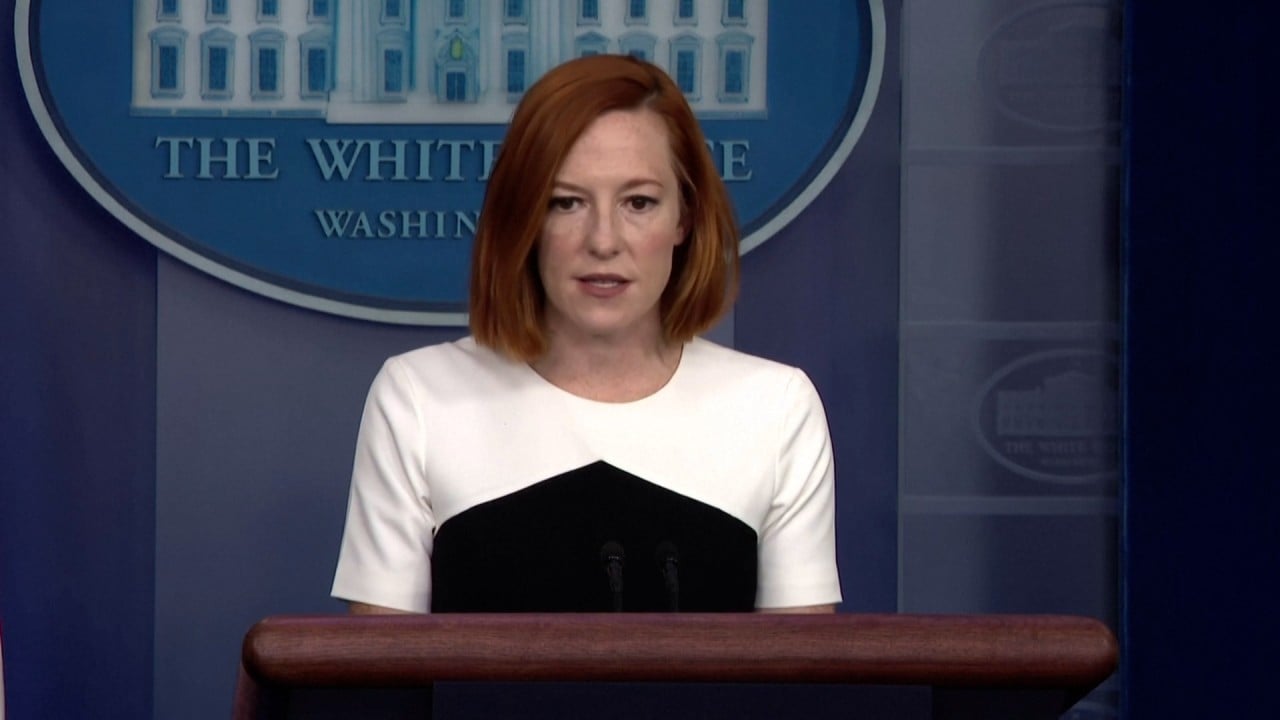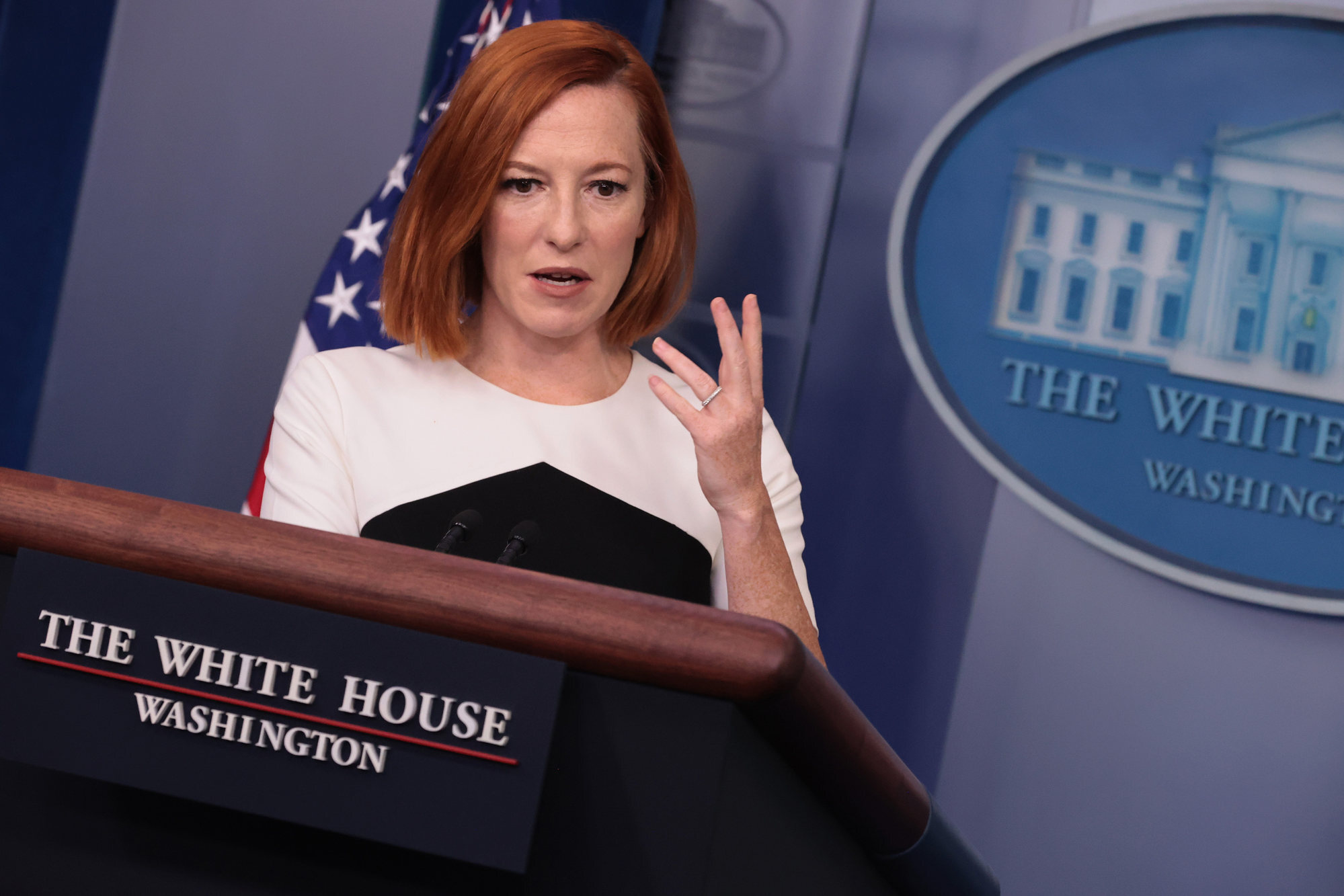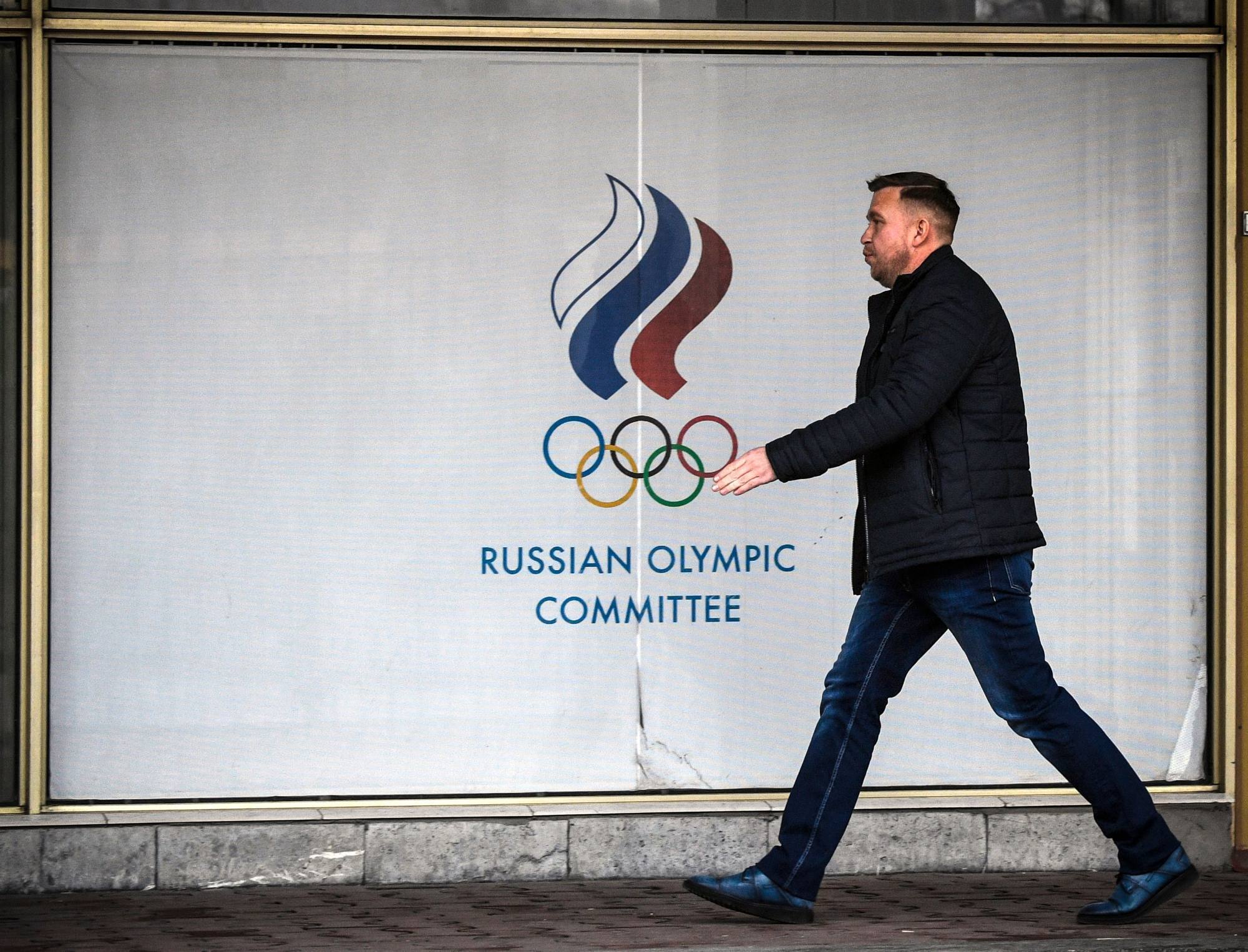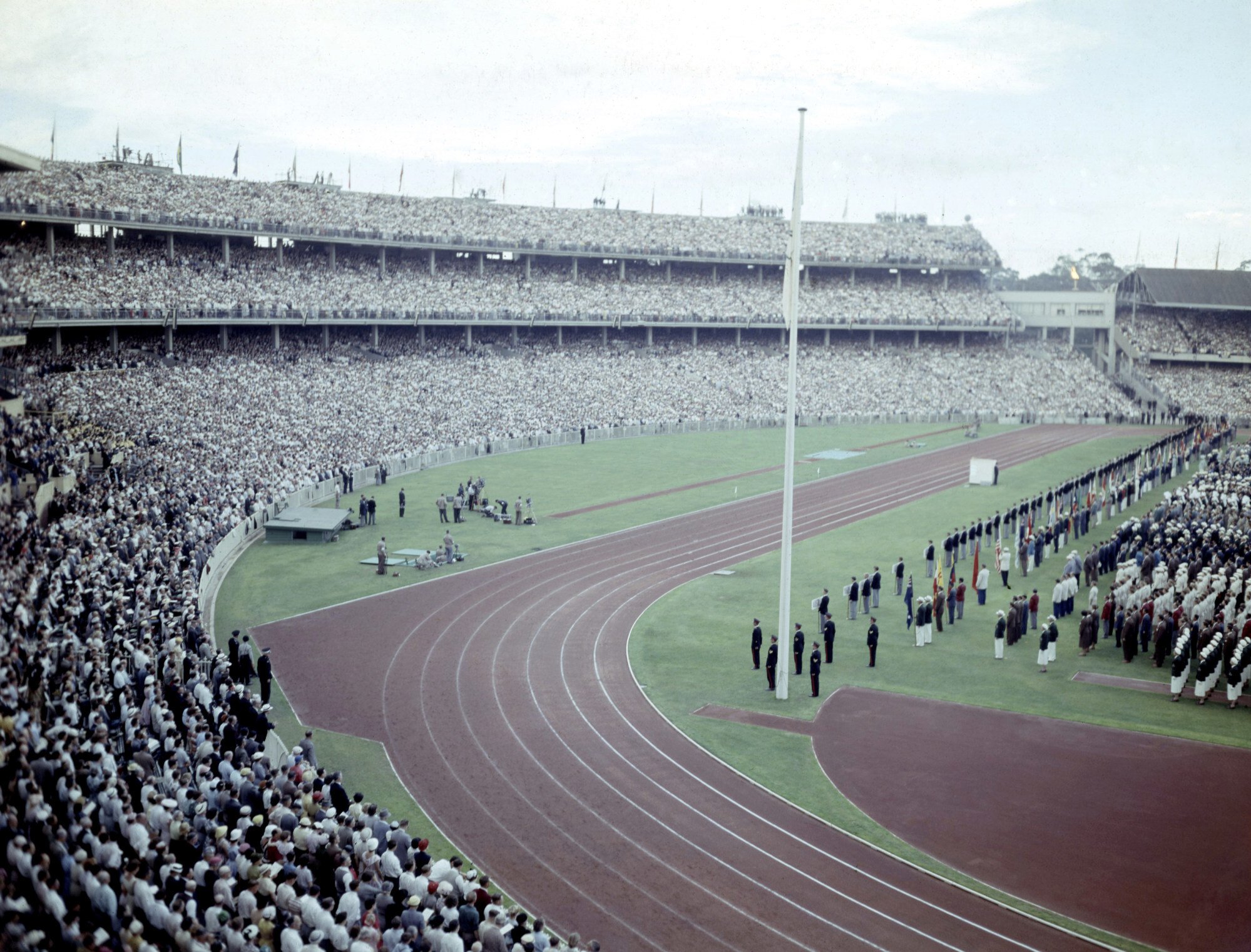
02:29
US announces diplomatic boycott of Beijing Winter Olympics, expects other countries to follow
Explainer | US decision to boycott Winter Olympics is a rare move. But what does it mean, and will it actually achieve anything?
- The International Olympic Committee said it ‘fully respected’ each government’s stance on sending officials or diplomats to the Games
- Previous boycotts, such as the one seen in the 1980 Moscow Olympics, allowed athletes to compete under the Olympic flags or those of their National Olympic Committees
The confirmation that the United States was going ahead with its diplomatic boycott of the Winter Olympics in Beijing shocked the international community, largely because boycotts of the landmark sporting event have been rare.
Washington’s stance means it will not send top officials to Beijing, in protest against China’s human rights record, but athletes will still compete. This approach contrasts starkly with the last time the US boycotted the Games, when it declined to send any delegation to the Summer Olympics in Moscow in 1980.
Such official withdrawals often point to larger political disputes between countries, and do not always involve the host nation. New Zealand had previously said it would not be sending officials to the Games, and Lithuania said it would not be attending, although it stressed the “huge difference” between that and a boycott.
But what effect this will all actually have in the long run remains to be seen.
What has the reaction been?
On Tuesday, Chinese foreign ministry spokesman Zhao Lijian denounced the decision, stating the US “will pay the price for its wrongdoing”.
However, responding to a question about whether China would boycott the upcoming 2028 Summer Olympics to be held in Los Angeles, or intervene in the US’ bid for the 2030 Winter Olympics, Zhao did not elaborate on specific countermeasures.
“The wrongdoing of the US has destroyed the foundation and atmosphere of Sino-US sports exchanges and Olympic cooperation,” he said, adding Washington should recognise the consequences of its actions.
The US sporting community welcomed the permission for athletes to compete in the games despite the diplomatic boycott.
Sarah Hirshland, CEO of the United States Olympic and Paralympic Committee (USOPC), said it “greatly appreciates the unwavering support of the president and his administration and we know they will be cheering us on from home this winter”.
Europe hesitant over Beijing Olympic boycott calls
Four-time US Olympian Angela Ruggiero expressed relief that athletes were not affected by the boycott.
“You know, you work all your life to compete and you never want politics to get in the way of that chance,” she said.
The International Olympic Committee (IOC) said it “fully respected” each government’s stance on sending officials or diplomats to the Games, and commended the US for clarifying that athlete participation was “beyond politics”.

What does a diplomatic boycott mean in practice?
While the US will not send any diplomatic or official representation to the Games, it will still send athletes and has not said it plans to decline flying its flag during the opening and closing ceremonies.
Previous boycotts, such as the one seen in the 1980 Moscow Olympics, have allowed athletes to compete under the Olympic flags or those of their National Olympic Committees.
“The athletes on Team USA have our full support. We will be behind them 100 per cent as we cheer them on from home,” Jen Psaki, the White House press secretary, said. “We will not be contributing to the fanfare of the Games.”
The largest boycott to date was in 1980, when 66 countries, including the US, opted out
This represents a different approach to the full boycott launched in 1980, which came in protest to the Soviet Union’s invasion of Afghanistan a year earlier. Then, American athletes were warned that taking part in Moscow would see them stripped of their passports.
Not everyone in Washington supports the move, with Tom Cotton, a Republican Senator representing Arkansas, calling it a “half-measure”, and stating on Tuesday that the country’s athletes must not be sent to face the “dangers of a repugnant authoritarian regime”.

When has it happened before?
It has not happened before. This will be the first formal diplomatic boycott of a Winter Olympics.
Full boycotts of the Olympic Games, where both athletes and officials of a particular country do not attend or compete in the sporting event, have occurred six times in the event’s history between 1956 and 1988, all for the Summer Olympics.
At the 1956 Melbourne Games, several countries boycotted because of the Soviet Invasion of Hungary, while others skipped the event over the Suez Crisis. Almost 1,600 athletes dropped out as a result of political boycotts from their country.
A number of African countries boycotted the 1976 Olympics in Montreal in protest at New Zealand’s inclusion after its rugby team toured apartheid South Africa. Organised by Tanzania, the boycott involved more than 20 nations. There were tense negotiations between the IOC and the group, with the world governing body saying there was no justification for banning New Zealand, since rugby was not an Olympic sport at the time.
The largest boycott to date was in 1980, when 66 countries, including the US, opted out. In retaliation, 14 Eastern Bloc countries, including the Soviet Union and East Germany missed the Los Angeles Games four years later.
Mainland China and Taiwan have separately boycotted several Games over their long-running feud.
Beijing regards Taiwan as a breakaway province that must be reunified with the mainland, by force if necessary.
Olympic history shows sports and politics are intertwined
Did the 1980 boycott actually achieve anything?
In March this year, the USOPC said boycotting the Moscow Games had not worked as intended.
Susanne Lyons, the committee’s president, said the “geopolitical issues and concerns” meant to be addressed by a boycott were best handled by governments themselves, separate from the Games.
“We need to understand what the impact was in 1980 when we boycotted,” she said. “What was meant to be accomplished by that boycott was not accomplished. In fact all that happened was that the hopes and dreams of a large number of athletes never came to fruition.”

Could the effect of the boycott spread beyond the diplomatic sphere?
Besides being one of the foremost sporting events, the Winter Olympics also present major business opportunities for companies around the world.
The IOC profits from selling streaming rights to broadcast outlets across the world, as well as its corporate sponsorship programme. Brands also partner with athletes in advertising in a bid to gain positive publicity from the Games. Conservative estimates put the value of the Chinese market to sponsors at US$110 billion.
Still, a boycott has raised questions over the future of sponsorship deals, advertising, and broadcast revenue, and whether business will be affected by Washington’s stance.
Will sponsor Adidas speak out on Peng Shuai controversy?
The Olympic Partner Program allows participating companies to sponsor the Olympics with product exclusivity and the right to use the five-ring logo.
Major partners include multinational companies such as Airbnb, Alibaba Group, Coca Cola, China Mengniu Dairy Company Limited, Procter & Gamble, and Omega. Alibaba Group owns the South China Morning Post.
As of now, no company has announced plans to withdraw from the Games.
Who else might join?
Shortly after the announcement, New Zealand became the second country to confirm it was not sending any high-ranking officials to the Games, though Deputy Prime Minister Grant Robertson cited Covid-19 as the main reason for that decision.
Other countries reportedly considering a boycott include Australia, Britain and Canada.
Last Friday, Australia’s Prime Minister Scott Morrison said it would consider a boycott in light of the global outcry over China’s treatment of tennis player Peng Shuai, a three-time Olympian who in November accused Zhang Gaoli, a former high-ranking Chinese official, of pressuring her into sex.
On Monday, the UK’s foreign office said no decision had “yet been made” regarding a boycott, although Prime Minister Boris Johnson previously said in February that the country would not normally support one of sporting events.
Canada has also yet to make a decision, and while there appears to be little appetite among members of the European Union, incoming German foreign minister Annalena Baerbock suggested the government should “take a closer look”.



